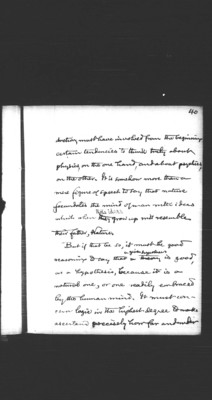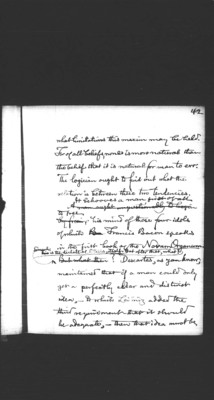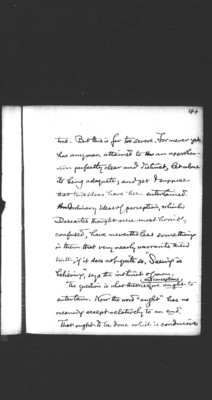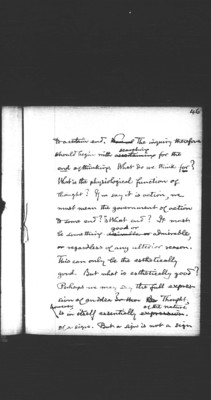Pages
26
40
must have involved from the beginning certain tendencies to think truly about physics, on the one hand, and about psychics, on the other. It is somehow more than a mere figure of speech to say that nature fecundates the mind of man with ideas which when those ideas grow up, will resemble their father, Nature.
But if that be so, it must be good reasoning to say that a given hypothesis is good, as a hypothesis, because it is a natural one, or one readily embraced by the human mind. It must concern logic in the highest degree to ascertain precisely how far and under
27
42
what limitations this maxim may be held. For of all beliefs, none is more natural than the belief that it is natural for man to err. The logician ought to find out what the relation is between these two tendencies.
It behooves a man first of all to free his mind of those four idols of which Francis Bacon speaks in the first book of the Novum Organum. So much is the dictate of Ethics, itself. But after that, what? Descartes, as you know, maintained that if a man could only get a perfectly clear and distinct idea,— to which Leibniz added the third requirement that it should be adequate,— then that idea must be
28
44
true. But this is far too severe. For never yet has any man attained to an apprehension perfectly clear and distinct, let alone its being adequate; and yet I suppose that true ideas have been entertained. Ordinary ideas of perception, which Descartes thought were most horribly confused, have nevertheless something in them that very nearly warrants their truth, if it does not quite so. “Seeing is believing,” says the instinct of man.
The question is what theories and conceptions we ought to entertain. Now the word “ought” has no meaning except relatively to an end. That ought to be done which is conducive
29
46
to a certain end. The inquiry therefore should begin with searching for the end of thinking. What do we think for? What is the physiological function of thought? If we say it is action, we must mean the government of action to some end? To what end? It must be something, good or admirable, regardless of any ulterior reason. This can only be the esthetically good. But what is esthetically good? Perhaps we may say the full expression of an idea? Thought, however, is in itself essentially of the nature of a sign. But a sign is not a sign
30
48
unless it translates itself into another sign in which it is more fully developed. Thought requires achievement for its own development, and without this development it is nothing. Thought must live and grow in incessant new and higher translations, or it proves itself not to be genuine thought.
But the mind loses itself in such general questions and seems to floating in a limitless vacuity. It is of the very essence of thought and purpose that it should be special, just as truly as it is of the essence of either that it should be general. [Skip to 52] Some writers have




